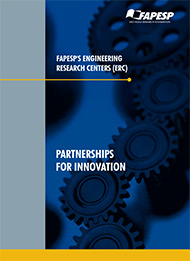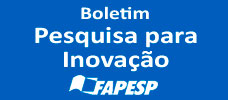The Brazilian Center for Early Child Development (CPAPI)

The Brazilian Center for Early Child Development (CPAPI)
Goal: Foster equal opportunities for children aged 0 to 6 years
Coordinator: Naercio Aquino Menezes Filho
Host Institution: INSPER Business School
Business partner: Maria Cecilia Souto Vidigal Foundation
https://cpapi.org.br
+55 11 4504-2427
contato@cpapi.org.br
FAPESP Process 2019/12553-0
Term: Oct 2021 to Sep 2031
CPAPI has the mission of generating and disseminating knowledge, through scientific evidence, for the formulation of public policies aimed at the healthy development of children aged 0 to 6 years. It receives funding from FAPESP through an agreement with the Maria Cecilia Souto Vidigal Foundation and is hosted by INSPER in São Paulo.
It is also the result of the “Science for Childhood” initiative whereby several institutions are promoting quality of life improvements during early childhood. The institutions are: Bernard van Leer Foundation, Harvard University’s Center on the Developing Child and David Rockefeller Center for Latin American Studies, Porticus Latin America, and the University of São Paulo’s Medical School (FM-USP), in addition to the Maria Cecilia Souto Vidigal Foundation and INSPER.
CPAPI's projects encompass the development and transfer of technologies for monitoring child development indicators to support public policies. The center is evaluating the impact of a policy to increase information about the Child health handbook (CSC) to medical staff on its use to measure child development in public health centers.
CPAPI also promotes courses for professionals in the health, education and social assistance sectors on the importance of child development, parenting, families, educational content and public policies on early childhood.
On another front, the center is following a new cohort of newborns in the city of Ribeirão Preto to collect DnA and mental health indicators. The babies of this cohort will be followed over time, and the center will measure their development in several ways, such as quality of sleep, brain image and mother-child interactions, among others.
RESEARCH HIGHLIGHTS
The importance of early childhood
Researchers create methodology for calculating federal budget allocated to children aged six and under in Brazil
Newborns to three months should be stimulated to hold and reach for objects, research suggests
According to a recently published study, when newborns observe adults performing everyday tasks, their social, motor and cognitive development is stimulated.
FAPESP launches Brazilian Center for Early Child Development
The new Applied Research Center’s mission is to conduct research that can provide input for public policies. FAPESP is partnering with the Maria Cecilia Souto Vidigal Foundation and InSPER to mount the initiative.
.
BV-FAPESP:
https://bv.fapesp.br/en/auxilios/107525/



